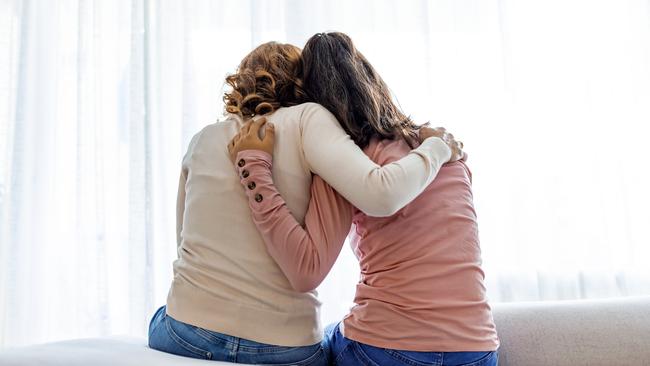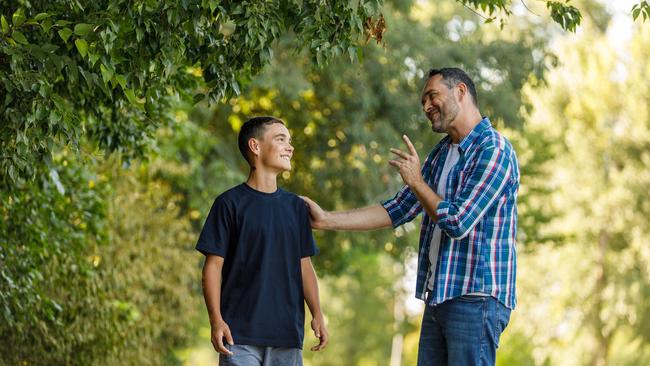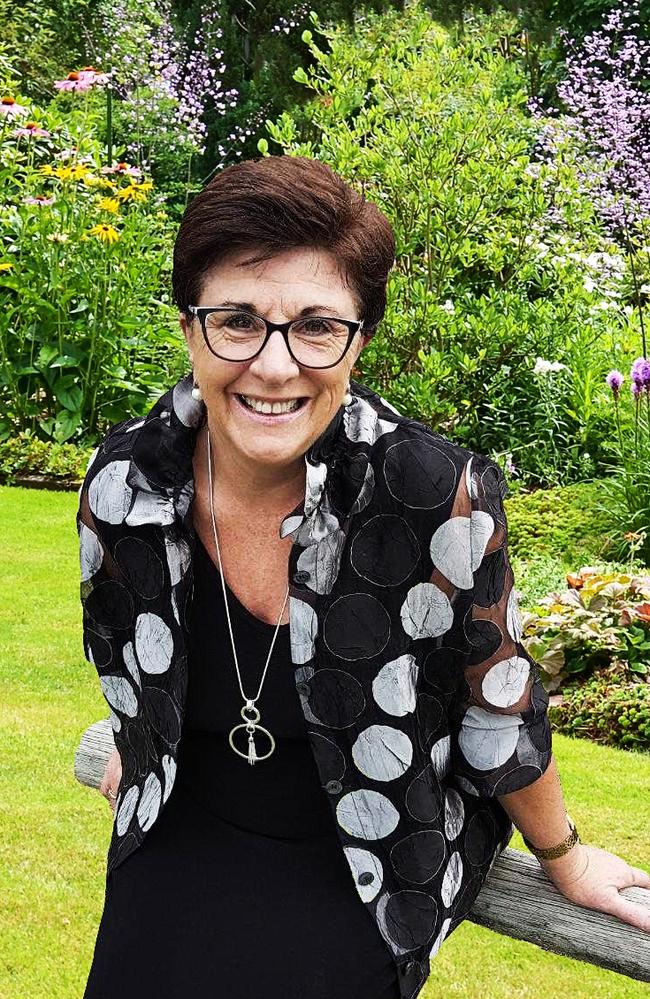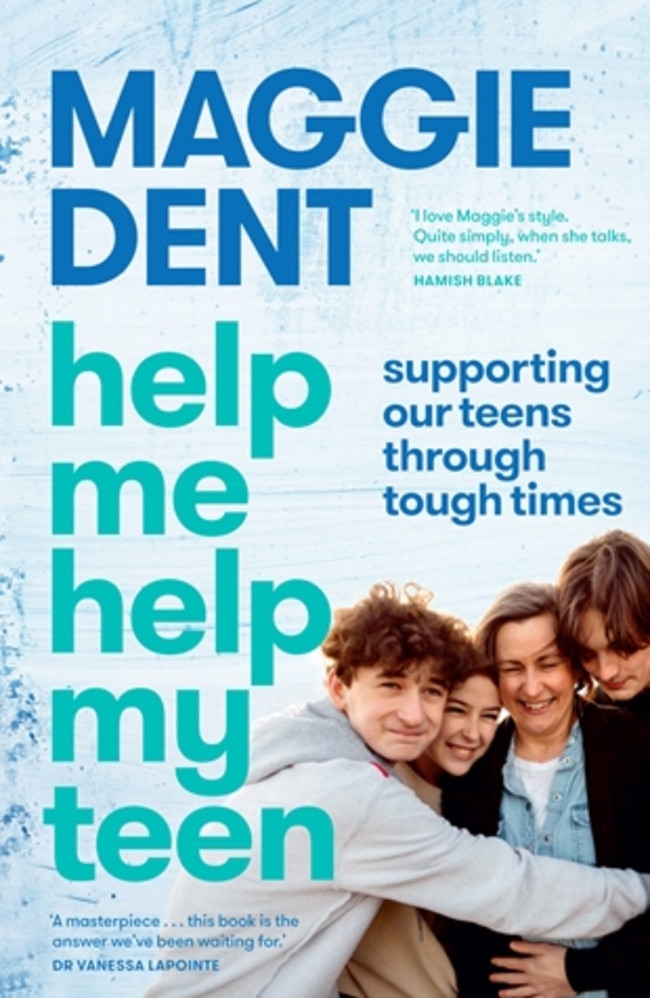‘He was planning to end his life’: Maggie Dent on how to communicate with your teens
Teens today are struggling with pressure, stress and anxiety. Parenting expert Maggie Dent shares important tips on how to communicate with teens who don’t want to talk.

QWeekend
Don't miss out on the headlines from QWeekend. Followed categories will be added to My News.
It’s much more difficult to be a teen today with added pressures, stress and anxiety. Good communication is crucial to create a warm relationship and emotional safety, writes parenting expert Maggie Dent. Below is an extract from her book Help Me Help My Teen.
Let’s start with the obvious; these are ineffective ways of communicating with anyone, especially teens: Lecturing, nagging, poor timing, arguing, unkindness, disrespect, shouting, sarcasm, criticism, guilt games, any physical abuse and shaming, ignoring them or freezing them out or using “always”, “never”, “it’s easy!”, or “it’s going to be hard”, as a predictor.
All these forms of communication do is damage the relationship and create tension and resentment, which simply increase a teen’s need to ignore you and rebel against you.
The more connected any child is to their significant caregiver, the more likely they will respond to your guidance.

Teens can be incredibly sensitive to negativity, especially from their parents.
I will never forget a 14-year-old boy I was teaching who looked quite distressed one afternoon.
I chatted to him after class, and he admitted that he was planning to end his life that day. He said his mum had been disappointed with his school report that went home the previous week. She had been freezing him out ever since, and he thought she had completely stopped loving him. He told me he would prefer to die than live without his mum’s love.
What a poignant reminder of the impact we have on our teens. If there is one thing I have learned in all my experience, it is that communication that is respectful and effective impacts every area of a human’s life.
Not only have I completed a diploma in counselling, studied psychology at university, and trained in bereavement support, I’ve also studied many different modalities of education to improve my capacity to communicate.
Often, people think communication is just about what comes out of our mouths.
We could not be more wrong.
Good communication can lead to warm relationships, emotional and relational safety, co-operation and feelings of self-worth.
Poor communication can do the opposite and cause kids and teens to turn off and away from adults.
Poor communication can cause constant conflict and bickering, a profound sense of disconnectedness and make kids feel they don’t matter and even lead to feelings of deep worthlessness.

Communication often seems to be done without thinking. It often happens spontaneously and is largely an unconscious act driven by a need for connection with others.
It’s mainly driven by the experiences we have had early in life and the narrative we have made up about that.
Often, we assume that the words that come out our mouths will obviously be understood by the person we’re speaking to and the meaning we had behind the words will be clear!
Again, we could not be more wrong. Spoken words and the meaning of spoken words are two very different things, and then the interpretation by others is another thing again, and that’s with mature grown-ups.
Communicating with the teen who has a cracked-windscreen view of the world means things can get confusing.
Next time you’re having a conversation with a really good friend or a respected workmate, I want you to take notice of the way that you speak to them.
Then next time you’re speaking to your teen, observe and reflect on the way you communicate with them.
Following my training in communication, I chose to speak the same way to everyone I came in contact with in my life – the students I taught, the couples whose weddings I was going to officiate, my neighbours, my good bloke, my adult sons, strangers on the train and to people I have just met.

I chose to speak with children the same way and when I was blessed with grandchildren, I chose to speak to them the same way once they became toddlers.
I realised many years ago that every single human, regardless of age, culture, or perceived difference, should be spoken to respectfully, even if they don’t deserve it.
I have worked in maximum-security prisons and when I communicated that way with the men I met there, some mentioned they had never been spoken to that way before.
I may be a little weird, but I do believe there is essential goodness hiding deep inside every human. Sometimes it gets crushed by life, by cruelty, by abuse or by manipulation.
Physiology matters
We are constantly communicating with or without words.
If you either have an innate or learned ability to create a warm, safe physical presence, others notice. This is extremely important for those who live or work with tweens and teens. Physiology is how we stand, how we move, and how we project ourselves in the company of others.

If a parent has their hands on the hips while standing upright and straight, that is a warning sign that things could be difficult. If, instead, they are leaning on a kitchen bench over a cuppa or sitting comfortably on a couch, they are sending signals that things are okay.
I learned early on in my teaching career that a smile costs nothing from me, however, it can be a powerful connector for kids and teens, especially those who come from difficult homes where there are few smiles.
Say hello, wish people a good day, and check in with a quick, “How are you doing today?” Even if it is a rhetorical question, it is a bid for positive connection.
Eye contact is another form of physiological connection. Having eye contact with someone we are communicating with can be a positive thing if they are comfortable with it.
Tonality matters
The second biggest influence on effective communication is tonality. I would argue that parents, educators and lighthouses (a teen’s other adult allies) who are able to maintain a non-threatening tone and respectfully communicate in quiet tones will tend to have less serious conflict with their teens.

Then, when something very serious comes along, a loud voice is really taken notice of and the teen realises they may have stepped over some line in the sand.
If there are a lot of raised voices or harsh tones, teens will learn to zone out in order to reduce the stress that it is causing them, and any serious message may be lost.
When parents are stressed, the tone of voice will display a very different tone to when they are feeling more grounded and calmer. Volume of voice also matters, obviously.
Presence matters
Given the busyness of life and the many things that parents have to focus on and remember, it can be difficult to remember to be present when having an opportunity to communicate with your teen.
A good habit to develop is to ensure that your phone is out of sight when you want to be present to your child of any age. Having alerts turned off on your phone is also really helpful, because as soon as a sound is heard from a phone, a teen will know that you are distracted and not fully present.
Before the arrival of smartphones, an easy time for parents to connect was when a child got home from school. Making a snack in the kitchen, chatting casually about their day without anyone focused on the phone is probably something the previous generation didn’t appreciate until it was gone.

Matching your teen’s physiology can be a helpful way of connecting.
If they are leaning over the kitchen bench or sitting on the couch, doing the same is apparently a quick way of establishing rapport. Side-by-side is considered non-confronting and having a relaxed posture can also send silent signals that things are okay.
This is why I often say chatting in the car or while walking the dog together can be especially effective.
Using ‘I’ statements matters
An important shift in our communication is so simple, and it is the shifting of using “you” statements, to “I” statements.
Imagine your teen has left their backpack in the hallway, half unpacked with football boots strewn across the entrance.

You can say: “You always leave your mess lying everywhere instead of packing it away. Someone could easily fall over it and get hurt.”
Or you could say: “I feel so frustrated when I see that mess lying everywhere instead of you packing it away because I worry that somebody could easily fall over it and get hurt.”
“You” statements tend to trigger blame, which tends to make our teens become defensive and that will decrease the chances that they may hear what your message was in the first place.
Being trustworthy matters
Healthy, supportive relationships are built on trust. Trust is the belief in someone or something’s ability, strength, truth or reliability.
As a parent, your teen needs to know that you will always have their back – that they can trust that you can still love them even when they muck up and make big mistakes.
One of the biggest areas that breaks teens’ ability to trust their parents is when the parents break the teen’s confidence and share personal information or stories with others without their permission. This can even be stories of success – when they have won an award.
There are many teens who have felt betrayed by their parents when they discovered how much of their personal childhood experiences have been shared online.
Please check before you share anything to ensure you don’t break the bond of trust that you have with your teen.

Being empathetic matters
Hopefully by now you would have come to understand that it is way more difficult to be a teen today than when you were one.
Life is more turbulent and uncertain, and there are even more pressures on our emerging adults that cause anxiety and stress.
To have genuine empathy, imagine putting yourself in your teen’s position – navigating a world with an uncertain future, with all the developmental challenges, especially with an immature brain.




